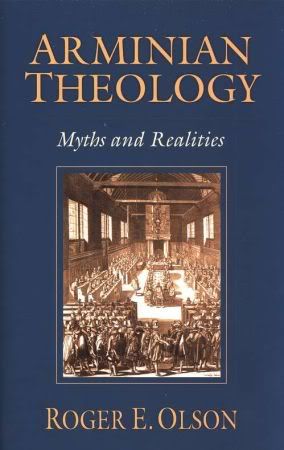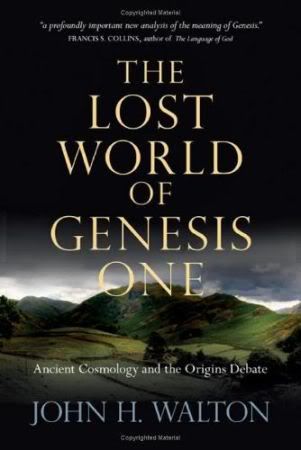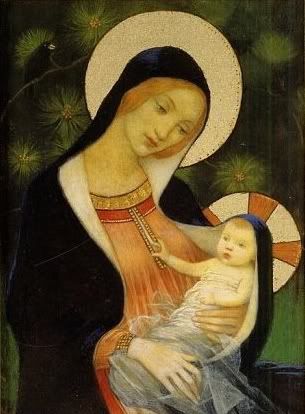The Armour of God is found in the sixth chapter of Paul’s letter to the Ephesians. It is one of the most popular passages of the Bible, prayed every day by some. Last fall I spoke about the Armour at my local church and I want to start off the year’s blogging (much later than intended - sorry!) by sharing that here.
Paul begins by setting a little context (Ephesians 6:10-12):
Finally, my brethren, be strong in the Lord, and in the power of his might. Put on the whole armour of God, that ye may be able to stand against the wiles of the devil. For we wrestle not against flesh and blood, but against principalities, against powers, against the rulers of the darkness of this world, against spiritual wickedness in high places.
We are engaged, he tells his audience, in spiritual warfare. Terms like ‘principalities’ and ‘powers’ aren’t as familiar today, but in the first century many, Jew and Gentile alike, believed that there were demonic influences in the world and had developed systems of categories of describe them. No standardized system is explicated endorsed in scripture but the Ephesians would have immediately understood that Paul is warning them of spiritual influences. And, more importantly, he is making the point that their conflict is not with other people, but with those spiritual influences. He told this to the Corinthians as well (2 Corinthians 10:3-4):
For though we walk in the flesh, we do not war after the flesh: (For the weapons of our warfare are not carnal, but mighty through God to the pulling down of strong holds;)
In his letter to the Ephesians he goes on to describe these ‘not carnal’ - non-physical - weapons with which God arms us (Ephesians 6:13-17):
Wherefore take unto you the whole armour of God, that ye may be able to withstand in the evil day, and having done all, to stand. Stand therefore, having your loins girt about with truth, and having on the breastplate of righteousness; And your feet shod with the preparation of the gospel of peace; Above all, taking the shield of faith, wherewith ye shall be able to quench all the fiery darts of the wicked. And take the helmet of salvation, and the sword of the Spirit, which is the word of God:
The Armour is a metaphor. No Indiana Jones is ever going to dig it up. Breaking down this metaphor, what is Paul talking about?
‘Your loins girt about with truth.’ The weight of your body hangs on your back and your back in turn is supported by your lower abdomen. It is the base that holds everything upright. In palates the lower abdomen is called the power zone. Our power zone is truth. Jesus said He wants us to worship Him in spirit and in truth (John 4:24). It’s not enough to have good intentions. It’s not enough to enjoy worship. You also have to have sound doctrine when serving the Lord.
‘The Breast Plate of Righteousness.’ The Bible says that only the Pure of Heart shall see God (Psalms 24:3-4, Matthew 5:8).
‘Feet shod with the preparation of the gospel of peace.’ To be prepared to share the good news (Isaiah 52:7, Romans 10:15).
‘The shield of faith, wherewith ye shall be able to quench all the fiery darts of the wicked.’ I have more to say about the importance of shields below, but in life you will be buffeted. Some may be happy to learn that you are serving the Lord, but most people are indifferent or even hostile. It is our faith that enables us to remain strong.
‘The helmet of salvation.’ In the Bible the head represents authority. But this is not our own authority, but another’s. Salvation belongs to the Lord (Psalm 3:8). The helmet of salvation represents submission to God‘s authority and to His salvation plan.
‘The sword of the spirit, which is the word of God.’ The Greek translated as ‘word’ in this verse is not logos, but
rhema, which implies something spoken or written, often spontaneously. Paul wants us to be led of the Spirit as we speak or write as Christians.
The Armour of God, then, refers to the many aspects of our Christian walk. Sound doctrine, right living, a readiness to act and to speak, faith and a submission to His will. But once we have the armour on, what do you do? Most people stop reading about the Armour with verse seventeen, but that is only half way through a sentence. Paul continues on the subject for three more verses (Ephesians 6:18-20):
Praying always with all prayer and supplication in the Spirit, and watching thereunto with all perseverance and supplication for all saints; And for me, that utterance may be given unto me, that I may open my mouth boldly, to make known the mystery of the gospel, For which I am an ambassador in bonds: that therein I may speak boldly, as I ought to speak.
We are in spiritual warfare. We have our armour on. What now? Paul tells us to do three things.
Number one, ‘praying always and in all supplication in the Spirit.’ Supplication means petition. Whether we need money or cancer healed, it means bringing our needs to the Lord. But whatever needs we have, we are to pray in the Spirit. We are to be led by the Spirit when we pray.
Number two, ‘watching thereunto with all perseverance and supplication for all saints.’ We aren’t to just pray for ourselves. We are to pray diligently for one another. To use the standard Christian terminology, we’re to become intercessors.
Isaiah 59:16-17 reads:
And he saw that there was no man, and wondered that there was no intercessor: therefore his arm brought salvation unto him; and his righteousness, it sustained him. For he put on righteousness as a breastplate, and an helmet of salvation upon his head; and he put on the garments of vengeance for clothing, and was clad with zeal as a cloak.
Reading this passage I noticed that there are two things Paul later includes in the Armour of God, the breastplate of righteousness and the helmet of salvation, but there are also two things he leaves out. Paul doesn’t write about being clothed in vengeance. That didn’t surprise me. The Bible makes it very clear that vengeance belongs to God. Even people who know nothing of the scripture know God says, ‘vengeance is mine’ (Duet 32:35, Romans 12:19, Hebrews 10:30). But why aren’t we to be clad in zeal as a cloak? Soldiers wore cloaks. God wants us to be zealous. The point Paul is trying to make to the Ephesians, however, took him in a different direction. Before talking about armour he’s talks about family. He’s talks about husbands serving God, wives serving their husbands, children serving their parents, servants serving their masters. There is an appropriate role and order in the family.
In the military there is also an appropriate role and order, an idea Paul carries over from the family to spiritual warfare very easily. He starts off by telling us spiritual soldiers to stand. Every Roman soldier stood in a holding their shields in their left hand and their weapon in their right. They stood shoulder to shoulder, their shields protecting their left side and the right side of the person standing to their left. Their right side was protected by the person standing to their right. They stood protecting one another with a wall of shields. When soldiers were told not to break ranks, they were being told to keep the line firm. To stand. I’ve seen films where armies march smartly towards each other, in ranks, but when they get a few yards from one another they break those ranks and charge. Its all very dramatic, but its wrong. In reality the armies would march right up to one another, attacking without breaking ranks. In fact, the whole point was to get the other side to break its ranks. A group of individuals, however well armed, could never stand against a disciplined unit. In the passage quoted from Isaiah God is pouring out His wrath on Israel, because there were no intercessors. No one
in Israel was standing and praying for Israel. We are to pray in the Spirit, to be led by the Spirit, and we are to pray for one another. That’s how we stand.
And the third thing Paul says is ‘pray for me, that I may open my mouth boldly.’ There is a lot packed into that short statement, but I want to focus on two things. First, Paul did not say ‘pray for my ministry,’ or ‘pray that others will receive my message,’ he said ‘pray for me.’ So often our desire to shine as a light for Him gets turned around into a refusal to admit our needs to one another. We wouldn’t think of lying with our words, but we never hesitate to put on a fake smile. But Paul came right out and said, ‘pray for me.’ Its one thing for me to want to watch, with all perseverance, for your needs, but how am I to know what they are if you don’t tell me? Likewise, if I don’t tell you my need, how can I expect you to pray for it?
The second thing I want to focus on is prayer for our leadership. A soldier does what he is told. If his general makes a bad choice, the general does pay for it, but the soldier pays even more. The general sits on the hill top directing his men with orders and trumpets and signals, while the soldiers down below are fighting and killing each other. Who is going to be impacted more by a bad decision? The soldier down there fighting or the general up on the hill watching him fight? You have an interest in your leadership’s welfare. You want your leader to be in touch with God. You want your leader to be blessed of God. You want your leader’s counsel for you to be exactly what God wants it to be. But if you’re not supporting your leader in prayer, you’re weakening your leader and that will come down on you eventually. We have an interest in supporting our leadership in prayer.
A spiritual warrior, then, is a prayer warrior. It seems that everyone I’ve heard described as a prayer warrior is a woman, a senior, and somebody’s mother. Or grandmother. But God wants each of us to bear this burden of prayer. That why we bear the weapons of this warfare. To stand in the gap for His people. To be led in the Spirit in all our supplications, for ourselves and for the whole body of Christ.
 By Roger E. Olson
By Roger E. Olson

